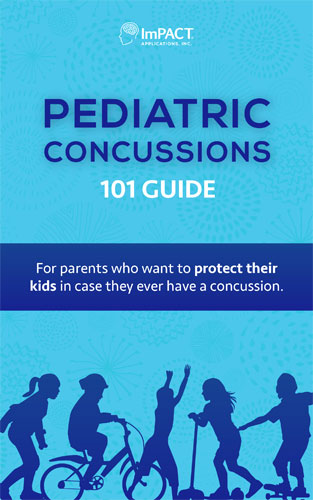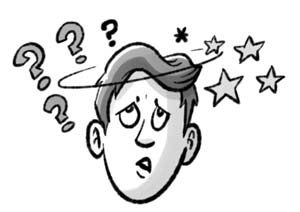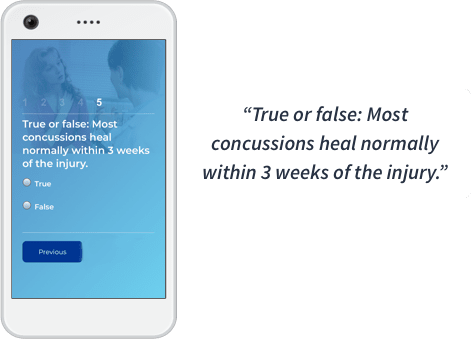PEDIATRIC CONCUSSIONS 101 GUIDE
Signs of Concussion in Children
HOW DO YOU KNOW IF YOUR CHILD HAS A CONCUSSION?
- Look for these concussion signs in your child: vomiting, difficulty focusing, light or noise sensitivity, change in behavior or sleep pattern, increased anxiety.
- Ask if your child has any of these symptoms: headache, dizziness, fogginess, balance problems, vision problems, sleep issues.
- Take your child to the emergency department immediately if they have: loss of consciousness, slurred speech, repeated vomiting, increased confusion.
- Find someone who can help. Look for a concussion specialist near you so they can diagnose a concussion in your child if they suffer a head injury.
- Get educated. Preventing concussions in children is not possible. The only way to be prepared for one is to learn about concussion basics and to get your child baseline tested.
1. PEDIATRIC CONCUSSION BASICS
[Download Pediatric Concussions 101 Guide]
WHAT IS A PEDIATRIC CONCUSSION?
A pediatric concussion is a head injury in children caused by moving forces such as a bump, blow, or jolt to the head. Because children are at a critical point in their development, they require a specialized approach to concussion care. This includes validated and age-appropriate tools used by healthcare providers to help assess and manage pediatric concussions.
Unlike adults, children may have a more difficult time expressing symptoms making careful evaluation from a healthcare provider essential. They will be most able to communicate potential risk factors and recommend special educational accommodations needed during your child's recovery.
If you suspect your child may need treatment, find a trained concussion specialist who is knowledgeable of symptoms and can create a personalized care plan that meets your child's needs.
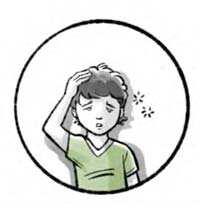
CAN YOU PREVENT CONCUSSIONS IN CHILDREN?
Unfortunately, preventing concussions in children is not possible. Some parents think that keeping their children from playing sports like soccer or ice hockey will prevent concussions.
While concussions in sports are frequently discussed, they can also be caused by physical activity, car accidents, and falls. This means that all children are at risk for concussions.
For this reason, it’s very important that children, parents, and coaches get educated on concussion causes, signs, and symptoms.
The best plan is to get educated on symptoms and signs of concussion in children. Download the Concussion eBook for Kids and Parent's Toolkit for Concussion Care to educate your child and yourself about concussions.
Also be sure your youth league has this information, and recommend that they implement baseline testing for the athletes.
If your school or sports league does not offer group baseline testing, you can take one online, at home, in about 20 minutes.
Be sure your child’s youth sports league implements baseline testing for all the athletes. After proper education, baseline testing is a great way to be prepared if your child gets a concussion.
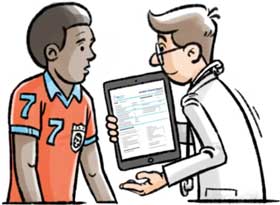
IS CONCUSSION A TREATABLE INJURY?
Concussions can be treated. With the right concussion care team, active rehabilitation strategies, and targeted treatment, your child can recover from a concussion.
There are research-based pediatric concussion guidelines to help guide treatment for the brain injury.
You may have talked to people who remember getting their bell rung and got back into the game the next play. Thankfully, times have changed.
Athletic trainers and trained healthcare professionals are on the field to recognize a concussion when it happens and keep your child safe.
Athletes who are removed from play immediately following a concussion are much more likely to recover from a concussion in less than 3 weeks.
Clinicians use objective data together with symptom reporting to measure the extent of the injury. They create individualized treatment plans that actively target problem areas until the child is back to normal.
Most importantly, clinicians now have a variety of tools they use to get a full picture of the injury. As concussion awareness grows, there’s no more relying just on a patient saying “I feel better.”
2. PEDIATRIC CONCUSSION SIGNS AND SYMPTOMS
[Download Pediatric Concussions 101 Guide]

WHAT ARE CONCUSSION SYMPTOMS IN CHILDREN?
The question arises frequently: How do you know if your child has a concussion? After a concussion, the symptoms that occur differ from patient to patient.
Symptoms of a concussion may not appear for days or weeks after the injury.
Concussion symptoms can include:
- Headache
- Balance problems
- Vision problems
- Sleep issues
- Difficulty concentrating
- Light or noise sensitivity
- Anxiety/mood disturbances
- Dizziness or fogginess
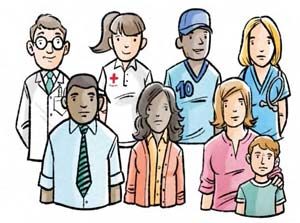
WHAT ARE SIGNS OF A CONCUSSION IN CHILDREN?
There are many concussion signs to be aware of in children. Teammates, coaches, and parents can learn to recognize these signs. Keep in mind that concussions may not involve a loss of consciousness. Getting a concussion feels different for every person who experiences it.
Signs of a concussion can include:
- Change in behavior
- Sleeping much more or less than usual
- Grades dropping for a student
- Increased anxiety
- Vomiting
- Dizziness
- Headaches
- Difficulty focusing
- Light or noise sensitivity
- Feeling worse in the afternoon compared to the morning
It's important to seek medical care for a concussion if you notice these signs in your child.
It’s especially important to be on the lookout for these signs in young children, because they may not know to report their symptoms.
CHILD HEAD INJURY: WHEN TO WORRY
A concussion is a traumatic brain injury, so it shouldn’t be taken lightly. There are several warning signs that indicate you should take your child to an emergency department.
These include:
- Drowsiness or inability to wake up
- A headache that gets progressively worse
- Slurred speech
- Repeated vomiting
- Increased confusion
- Loss of consciousness
You should monitor your child closely after an accident or blow to the head. If they have a concussion and don’t receive treatment, the consequences can be severe. Repeated concussions can cause prolonged recovery or long-term brain damage if not cared for properly.
If you are concerned your child has a concussion, take them to a trained concussion specialist.
3. PEDIATRIC CONCUSSION DIAGNOSIS AND TREATMENT
[Download Pediatric Concussions 101 Guide]

WHAT IS A CONCUSSION ASSESSMENT?
A concussion assessment is a healthcare provider’s method of checking for a concussion. It involves multiple tools.
Their assessment will determine the severity of the head injury (or concussion). Healthcare providers need to get an objective picture of head injuries in patients in the pediatric age group who may not know how to report their symptoms.
A concussion assessment will include a symptom check, neurocognitive testing, balance screening, and vestibular ocular testing.
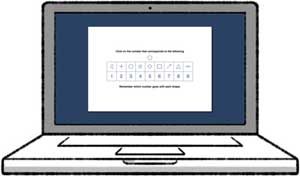
WHAT IS A BASELINE CONCUSSION TEST?
Baseline testing is a way of tracking brain functioning at a healthy state. A baseline neurocognitive test measures how the brain functions when it’s not injured.
A baseline test measures reaction time, memory, and processing speed. It gives healthcare providers an accurate picture of your child’s normal brain function.
They can use that baseline test data to compare with post-injury data to determine the extent of an injury.
They can also use this data to help decide when your child is back to normal cognitive functioning.
Anyone can take a baseline test to ensure they are prepared in case of a concussion. Visit BaselineTesting.com to get started.
If your child has a concussion, it’s important to see a trained healthcare specialist to ensure proper care after the injury.
Visit ConcussionCareProviders.com to find a trained concussion specialist in your area.
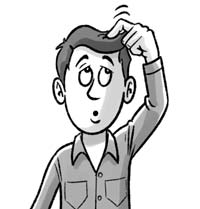
HOW ARE PEDIATRIC CONCUSSIONS TREATED?
If you’ve ever had a concussion, you were probably told to rest and wait it out. In the past, clinicians used the “dark room” approach, telling patients to rest until they felt better.
The problem with that treatment is: most patients didn’t feel better.
Strict rest is not effective in treating concussions.
Instead, an active rehabilitation model that targets specific, unique problem areas has been much more effective.
Clinicians combine symptoms, neurocognitive testing data, and vestibular/ocular testing to determine a patient’s clinical pathway and treatment plan.
It’s easier now for clinicians to create targeted, individual treatments for each unique injury. We know concussions require more than a “one-size-fits-all” approach.
When properly cared for, concussions are like any other sports injury: appropriate rehabilitation gets kids back to activity safely.
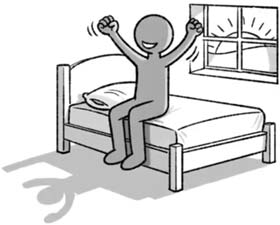
WHEN CAN MY CHILD RETURN TO SCHOOL AFTER A CONCUSSION?
After a concussion, your child should return to school relatively quickly. Getting a child back to their routine after a concussion is an important step in recovery.
Often, a healthcare provider will recommend academic adjustments so your child can return to school sooner. They understand that missing school can be very difficult on a student.
Academic adjustments help a student successfully learn while recovering from a concussion.
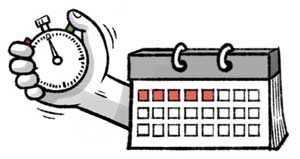
WHEN CAN MY CHILD RETURN TO PLAY AFTER A CONCUSSION?
Your child can return to play when their symptoms and all assessments have returned to baseline levels. A trained concussion specialist should always make the return to activity decision.
They will use ImPACT, vestibular ocular screening, and a comprehensive clinical interview to determine if your child is ready to return to activity.
Keep in mind that returning to school should come before returning to sports.
A trained healthcare specialist will put your child through a return to play protocol, a rehabilitation approach that ensures your child is ready for full activity.
The protocol includes sports-specific activities for children that sustained a sports concussion.
Teach your child about concussions in an engaging way.
This Dr. Seuss inspired eBook takes your child on an animal adventure while explaining the importance of telling an adult if they hit their head.

